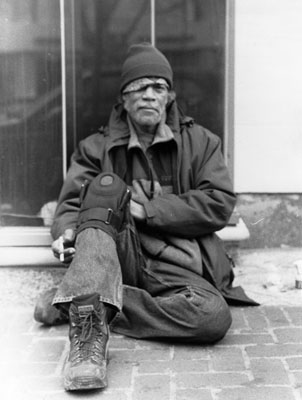All Nonfiction
- Bullying
- Books
- Academic
- Author Interviews
- Celebrity interviews
- College Articles
- College Essays
- Educator of the Year
- Heroes
- Interviews
- Memoir
- Personal Experience
- Sports
- Travel & Culture
All Opinions
- Bullying
- Current Events / Politics
- Discrimination
- Drugs / Alcohol / Smoking
- Entertainment / Celebrities
- Environment
- Love / Relationships
- Movies / Music / TV
- Pop Culture / Trends
- School / College
- Social Issues / Civics
- Spirituality / Religion
- Sports / Hobbies
All Hot Topics
- Bullying
- Community Service
- Environment
- Health
- Letters to the Editor
- Pride & Prejudice
- What Matters
- Back
Summer Guide
- Program Links
- Program Reviews
- Back
College Guide
- College Links
- College Reviews
- College Essays
- College Articles
- Back
Homeless In Seattle
In 2005, community leaders, churches, businesses, and organizations developed a 10-Year Plan to end homelessness. The ambitious plan focuses on giving people permanent homes and helping them while they are in difficult situations.
The 2011 annual report of the plan said that, “it called for the creation of 9,500 new housing units, an increase in prevention programs to keep people from becoming homeless and treatment and support services to break the cycle between hospitals, jails and the streets.”
Supporters of the plan said that the plan is working as there have been 5,100 housing units built since 2005; that is more than 50% of the goal of 9,500 units by 2015.
Critics say that the Plan is not solving the problem. When Komo 4 News asked George Sidwell, a resident of a tent city himself, if he thought the Plan would solve homelessness he said, “Definitely not. I believe they are going about it in the wrong way."
The Committee to End Homelessness told Komo 4 that the Plan, despite the “success building thousands of affordable housing units, isn’t keeping up with the thousands of residents still living on the streets.” The CEH is trying to get more emergency type-shelters into the 10-Year Plan.
A local church hosted a Tent City a little over a year ago. A teacher took students into Tent City for ministry opportunities.
“The Tent City moves every three months. Providing housing is a wonderful gesture, but I think putting resources towards skills/job/social training gets more to the root of the problem, one’s ability to provide for themselves.The bottom line is to love regardless of a person’s social status,” she said.
One student visited the Tent City this year. “It was an eye-opening [experience] and it was really sad for me…there was a significant number, and they are there at the generosity of the church," he said.
Other students have gone out on the Union Gospel Mission Search & Rescue van with family and friends from church. The van is an outreach ministry that drives around King County giving out blankets, sandwiches, hot chocolate, and other things that people may need.
Not many have been rescued out of homelessness for various reasons, but there are some success stories. “That’s what the Union Gospel wants to see,” said one of the students who has gone out on the van.
Another student, who has participated in the Experience Seattle Project in the past and will serve again this year, has known someone who has experienced homelessness. “It's real and applies to actual families...[that you] know and see in your daily lives,” she said. She routinely smiles at the homeless people she sees and will give out food to them if she has any. In her opinion, the 10-Year Plan to End Homelessness won’t work; “It's temporary, a quick fix to a problem that needs more attention than that.”
Some worry that Tent Cities pose a threat. One student responds to this fear, “They're just human beings. I hope someday soon tent cities will be gone simply because the problem of homelessness will actually be solved on a long term basis.”

Similar Articles
JOIN THE DISCUSSION
This article has 0 comments.
